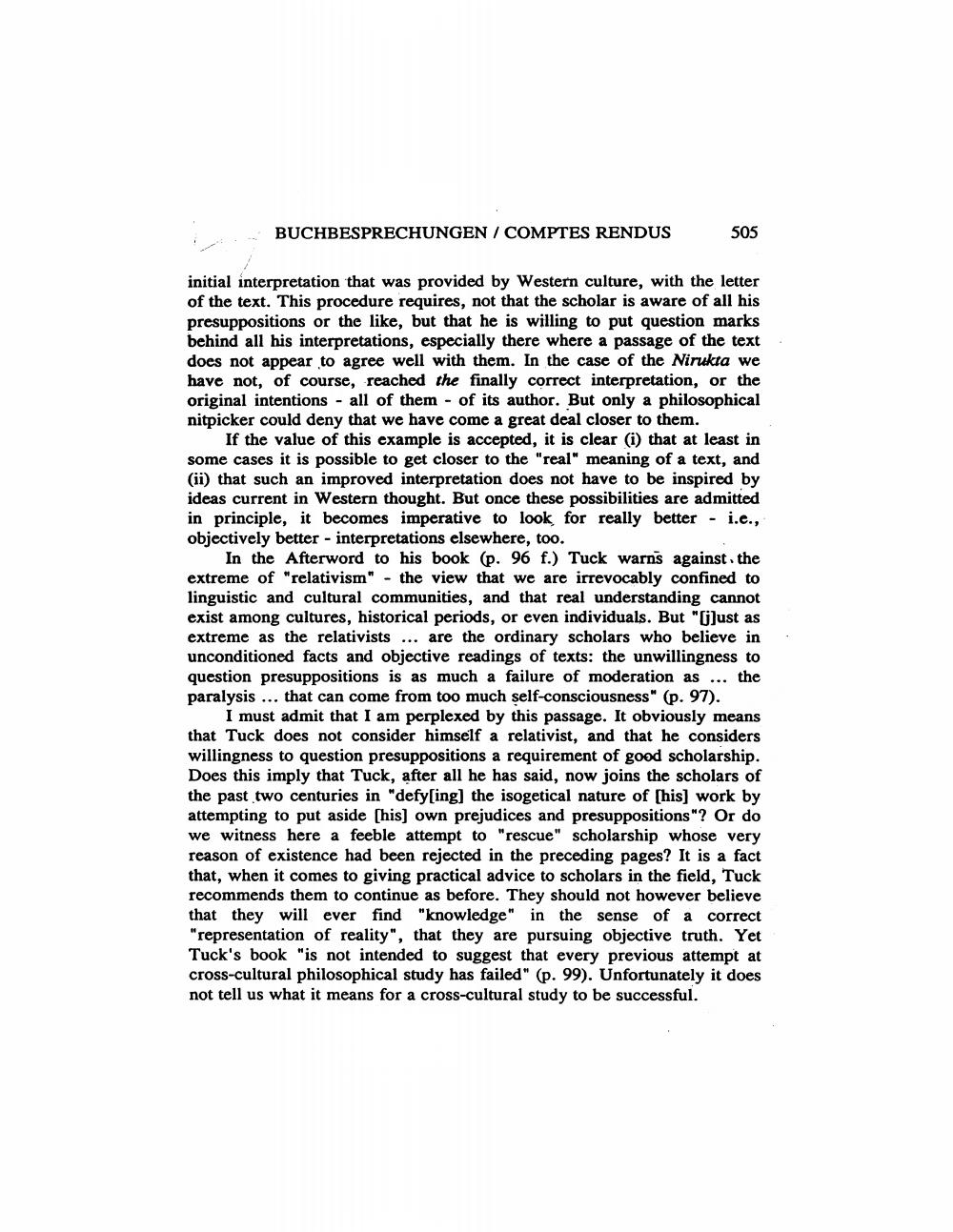Book Title: Buchbesprechungen Comptes Rendus Author(s): Johannes Bronkhorst Publisher: Johannes Bronkhorst View full book textPage 5
________________ BUCHBESPRECHUNGEN / COMPTES RENDUS 505 initial interpretation that was provided by Western culture, with the letter of the text. This procedure requires, not that the scholar is aware of all his presuppositions or the like, but that he is willing to put question marks behind all his interpretations, especially there where a passage of the text does not appear to agree well with them. In the case of the Nirukta we have not, of course, reached the finally correct interpretation, or the original intentions - all of them - of its author. But only a philosophical nitpicker could deny that we have come a great deal closer to them. If the value of this example is accepted, it is clear (i) that at least in some cases it is possible to get closer to the "real" meaning of a text, and (ii) that such an improved interpretation does not have to be inspired by ideas current in Western thought. But once these possibilities are admitted in principle, it becomes imperative to look for really better - i.e., objectively better - interpretations elsewhere, too. In the Afterword to his book (p. 96 f.) Tuck warns against the extreme of "relativism" - the view that we are irrevocably confined to linguistic and cultural communities, and that real understanding cannot exist among cultures, historical periods, or even individuals. But "G]ust as extreme as the relativists ... are the ordinary scholars who believe in unconditioned facts and objective readings of texts: the unwillingness to question presuppositions is as much a failure of moderation as ... the paralysis ... that can come from too much self-consciousness" (p. 97). I must admit that I am perplexed by this passage. It obviously means that Tuck does not consider himself a relativist, and that he considers willingness to question presuppositions a requirement of good scholarship. Does this imply that Tuck, after all he has said, now joins the scholars of the past two centuries in "defy[ing] the isogetical nature of his work by attempting to put aside [his) own prejudices and presuppositions"? Or do we witness here a feeble attempt to "rescue" scholarship whose very reason of existence had been rejected in the preceding pages? It is a fact that, when it comes to giving practical advice to scholars in the field, Tuck recommends them to continue as before. They should not however believe that they will ever find "knowledge in the sense of a correct "representation of reality", that they are pursuing objective truth. Yet Tuck's book "is not intended to suggest that every previous attempt at cross-cultural philosophical study has failed" (p. 99). Unfortunately it does not tell us what it means for a cross-cultural study to be successful.Page Navigation
1 ... 3 4 5 6 7 8 9 10
